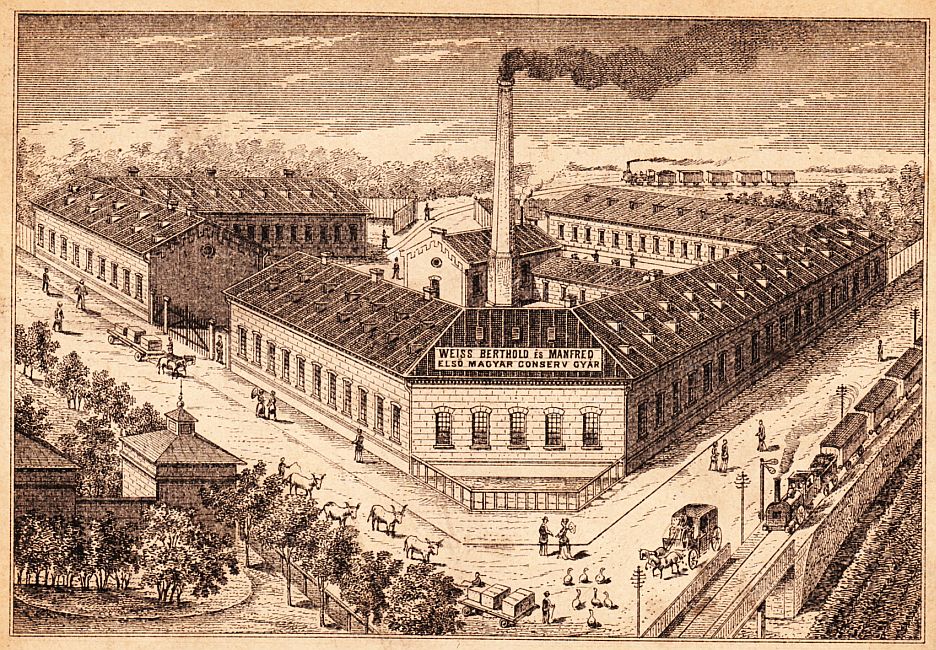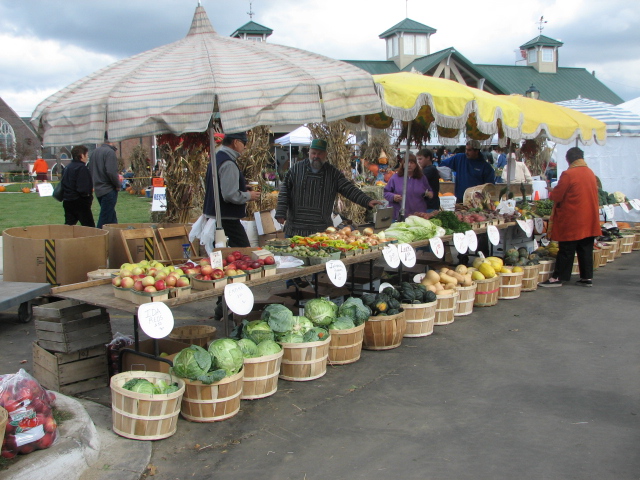|
You-Pick And Pick-Your-Own
A You-Pick ("U-Pick") or Pick-Your-Own (PYO) farm operation is a type of farm gate direct marketing (farm-to-table) strategy where the emphasis is on customers doing the harvesting themselves. A PYO farm might be preferred by people who like to select fresh, high quality, vine-ripened produce themselves at lower prices. Advantages of You-Pick or Pick-Your-Own marketing This strategy is not unique and has probably been around as long as farmers have grown more than they can sell at wholesale or consume on the farm. U-pick operations serve as an alternative selling method that, depending on the type of produce a farmer grows and the farm's customer base, it can supplement other marketing strategies. This strategy has several advantages: * Direct sales to the consumer lowers operating costs and brings a profit even if prices may be lower. * There are no transportation costs and no need for seasonal labor. * Lower packaging costs because customers are encouraged to bring their own bag ... [...More Info...] [...Related Items...] OR: [Wikipedia] [Google] [Baidu] |
Farm Gate Marketing
Farm gate marketing or farmgate sales describes a direct marketing method whereby farmers sell agricultural produce—mostly food—directly to the consumer, to restaurants and caterers, and to independent retailers. Farm gate sales are a common type of marketing found throughout traditional small farming sectors worldwide and, in some countries, account for the vast amount of sales as far as foodstuffs and livestock are concerned. Characteristics As the name implies, farm gate sales is a marketing strategy undertaken by the producer near the location where the product is produced. Consumers come to the production unit or farm to buy produce and, in some cases, pick the produce themselves. Examples include the sale of vegetables from a producer's garden, the sale of eggs from an egg production unit, the direct sale of livestock from a ranch, and pick-your-own berries, fruits, and flowers operations. In general, there is no limit to the type of items that can be marketed in this ... [...More Info...] [...Related Items...] OR: [Wikipedia] [Google] [Baidu] |
Direct Marketing
Direct marketing is a form of communicating an offer, where organizations communicate directly to a pre-selected customer and supply a method for a direct response. Among practitioners, it is also known as ''direct response marketing''. By contrast, advertising is of a mass-message nature. Response channels include toll-free telephone numbers, reply cards, reply forms to be sent in an envelope, websites and email addresses. The prevalence of direct marketing and the unwelcome nature of some communications has led to regulations and laws such as the CAN-SPAM Act, requiring that consumers in the United States be allowed to opt-out. Overview Intended targets are selected from larger populations based on vendor-defined criteria, including average income for a particular ZIP code, purchasing history and presence on other lists. The goal is "to sell directly to consumers" without letting others "join (the) parade." Popularity A 2010 study by the Direct Marketing Association r ... [...More Info...] [...Related Items...] OR: [Wikipedia] [Google] [Baidu] |
Farm-to-table
Farm-to-table (or farm-to-fork, and in some cases farm-to-school) is a social movement which promotes serving local food at restaurants and school cafeterias, preferably through direct acquisition from the producer (which might be a winery, brewery, ranch, fishery, or other type of food producer which is not strictly a "farm"). This might be accomplished by a direct sales relationship, a community-supported agriculture arrangement, a farmer's market, a local distributor or by the restaurant or school raising its own food. Farm-to-table often incorporates a form of food traceability (celebrated as "knowing where your food comes from") where the origin of the food is identified to consumers. Often restaurants cannot source all the food they need for dishes locally, so only some dishes or only some ingredients are labelled as local. The farm-to-table movement has arisen more or less concurrently with changes in attitudes about food safety, food freshness, food seasonality, and sma ... [...More Info...] [...Related Items...] OR: [Wikipedia] [Google] [Baidu] |
Produce
Produce is a generalized term for many farm-produced crops, including fruits and vegetables (grains, oats, etc. are also sometimes considered ''produce''). More specifically, the term ''produce'' often implies that the products are fresh and generally in the same state as where and when they were harvested. In supermarkets, the term is also used to refer to the section of the store where fruit and vegetables are kept. ''Produce'' is the main product sold by greengrocers (UK, Australia) and farmers' markets. The term is widely and commonly used in the U.S. and Canada, but is not typically used outside the agricultural sector in other English-speaking countries. In parts of the world, including the U.S., produce is marked with small stickers bearing price look-up codes. These four- or five- digit codes are a standardized system intended to aid checkout and inventory control at places where produce is sold. Storage Vegetables are optimally stored between 0° and 4.4° Cel ... [...More Info...] [...Related Items...] OR: [Wikipedia] [Google] [Baidu] |
Canning
Canning is a method of food preservation in which food is processed and sealed in an airtight container ( jars like Mason jars, and steel and tin cans). Canning provides a shelf life that typically ranges from one to five years, although under specific circumstances, it can be much longer. A freeze-dried canned product, such as canned dried lentils, could last as long as 30 years in an edible state. In 1974, samples of canned food from the wreck of the ''Bertrand'', a steamboat that sank in the Missouri River in 1865, were tested by the National Food Processors Association. Although appearance, smell, and vitamin content had deteriorated, there was no trace of microbial growth and the 109-year-old food was determined to be still safe to eat. History and development French origins During the first years of the Napoleonic Wars, the French government offered a hefty cash award of 12,000 francs to any inventor who could devise a cheap and effective method of preservin ... [...More Info...] [...Related Items...] OR: [Wikipedia] [Google] [Baidu] |
Ted Moult
Edward Walker Moult (11 February 1926 – 3 September 1986) was a British farmer at Scaddows Farm near Ticknall, Derbyshire, who became a radio and television personality. Early life Moult was born in Derby. He left Derby School at 17 in 1944 but, by 22, had his first dairy farm in Sinfin, on the outskirts of the city. He has been credited with the concept of "pick-your-own" strawberries at his farm; he began in 1961, and always made a point of greeting his customers. Showbiz career Moult first came to public attention in the 1950s on BBC Radio's general knowledge quiz ''Brain of Britain'', although he was knocked out in the first round. He consolidated his fame with appearances on discussion programmes such as ''Any Questions?'' and panel games such as '' Ask Me Another'', and was a household name by the mid-1960s. The presenter Franklin Engelmann gave him the nickname 'Ticknall Ted'. In December 1959, he was the week's castaway on BBC Radio 4's ''Desert Island Discs' ... [...More Info...] [...Related Items...] OR: [Wikipedia] [Google] [Baidu] |
Agritourism
Agritourism or agrotourism involves any agriculturally based operation or activity that brings visitors to a farm or ranch. Types A 2018 article published in the ''Journal of Agriculture, Food Systems, and Community Development'' classified agritourism activities as falling into one or more categories: direct-to-consumer sales (e.g., farm stands, u-pick), agricultural education (e.g., school visits to a farm), hospitality (overnight farm stays), recreation (e.g., hunting, horseback riding), and entertainment (e.g., hayrides, harvest dinners). Most agritourists spent time visiting farm stands, picking fruit, or feeding animals; others may navigate a corn maze or do a farm stay, assisting with chores or agricultural or ranch work. Economic benefits Agricultural tourism has become a necessary means for many small farms’ survival. By diversifying business operations, farm operators are able to ensure a more stable income. This is because agritourism activities can occur duri ... [...More Info...] [...Related Items...] OR: [Wikipedia] [Google] [Baidu] |
Farmers' Market
A farmers' market (or farmers market according to the AP stylebook, also farmer's market in the Cambridge Dictionary) is a physical retail marketplace intended to sell foods directly by farmers to consumers. Farmers' markets may be indoors or outdoors and typically consist of booths, tables or stands where farmers sell their produce, live animals and plants, and sometimes prepared foods and beverages. Farmers' markets exist in many countries worldwide and reflect the local culture and economy. The size of the market may be just a few stalls or it may be as large as several city blocks. Due to their nature, they tend to be less rigidly regulated than retail produce shops. They are distinguished from public markets, which are generally housed in permanent structures, open year-round, and offer a variety of non-farmer/non-producer vendors, packaged foods and non-food products. History The current concept of a farmers' market is similar to past concepts, but different in relation ... [...More Info...] [...Related Items...] OR: [Wikipedia] [Google] [Baidu] |
Booker T
Booker T or Booker T. may refer to * Booker T. Washington (1856–1915), African American political leader at the turn of the 20th century ** List of things named after Booker T. Washington, some nicknamed "Booker T." * Booker T. Jones (born 1944), American musician and frontman of Booker T. and the M.G.'s * Booker T (wrestler) (born 1965), ring name of American professional wrestler Booker Huffman Also * Booker T. Bradshaw (1940–2003), American record producer, film and TV actor, and executive * Booker T. Laury (1914–1995), American boogie-woogie and blues pianist * Booker T. Spicely (1909–1944) victim of a racist murder in North Carolina, United States * Booker T. Whatley (1915–2005) agricultural professor at Tuskegee University * Booker T. Washington White (1909–1977), American Delta blues guitarist and singer known as Bukka White * Booker T. Boffin, pseudonym of Thomas Dolby Thomas Morgan Robertson (born 14 October 1958), known by the stage name Thomas D ... [...More Info...] [...Related Items...] OR: [Wikipedia] [Google] [Baidu] |
Agricultural Marketing
Agricultural marketing covers the services involved in moving an agricultural product from the farm to the consumer. These services involve the planning, organizing, directing and handling of agricultural produce in such a way as to satisfy farmers, intermediaries and consumers. Numerous interconnected activities are involved in doing this, such as planning production, growing and harvesting, grading, packing and packaging, transport, storage, agro- and food processing, provision of market information, distribution, advertising and sale. Effectively, the term encompasses the entire range of supply chain operations for agricultural products, whether conducted through ''ad hoc'' sales or through a more integrated chain, such as one involving contract farming. Agricultural marketing development Efforts to develop agricultural marketing have, particularly in developing countries, intended to concentrate on a number of areas, specifically infrastructure development; information ... [...More Info...] [...Related Items...] OR: [Wikipedia] [Google] [Baidu] |
Food Retailing
Food is any substance consumed by an organism for nutritional support. Food is usually of plant, animal, or fungal origin, and contains essential nutrients, such as carbohydrates, fats, proteins, vitamins, or minerals. The substance is ingested by an organism and assimilated by the organism's cells to provide energy, maintain life, or stimulate growth. Different species of animals have different feeding behaviours that satisfy the needs of their unique metabolisms, often evolved to fill a specific ecological niche within specific geographical contexts. Omnivorous humans are highly adaptable and have adapted to obtain food in many different ecosystems. The majority of the food energy required is supplied by the industrial food industry, which produces food with intensive agriculture and distributes it through complex food processing and food distribution systems. This system of conventional agriculture relies heavily on fossil fuels, which means that the food and agric ... [...More Info...] [...Related Items...] OR: [Wikipedia] [Google] [Baidu] |



_06.jpg)


